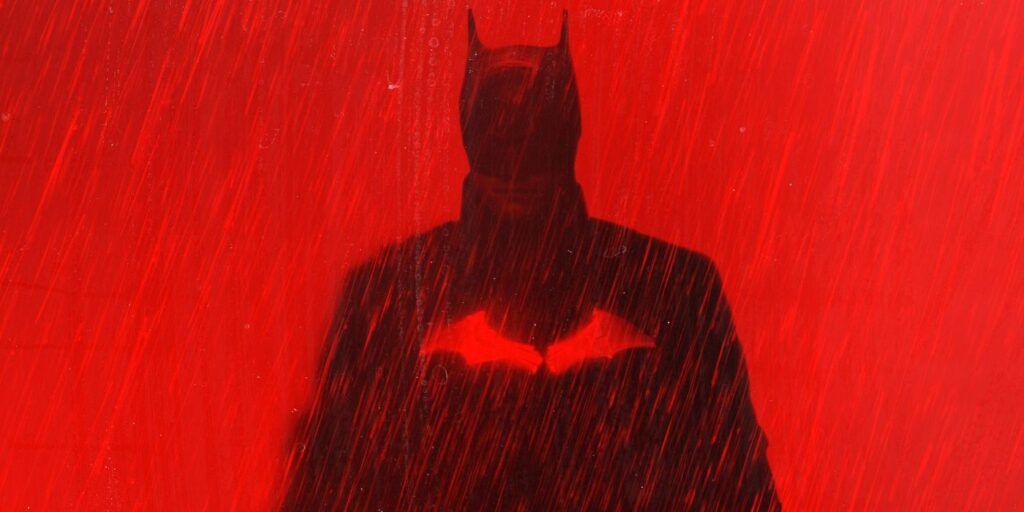It’s late at night just after a theater show has finished in Gotham City, and usually, the well-to-do Wayne’s are caught in a downpour. Retreating down an alley to get back to their car, they’re accosted by a robber; gunshots follow, and all that’s left is a scattering of white pearls torn from Martha’s neck. That’s the traditional origin story for philanthropic playboy superhero Bruce Wayne, at least, and not something we get to see in . Collider participated in a press conference in Los Angeles where Robert Pattinson and Matt Reeves revealed that while they didn’t want to shoot the traditional backstory, it was discussed at length. Pattinson said:
“We discussed it a lot. And it’s funny because you try and everyone wanted to avoid doing origin story, but then you invariably, it’s a new version of the character, and you’re so aware of the origins, but you end up trying to sort of play it in the subtext, in little moments. Because the story is set over such a short period, as well, it’s actually really difficult to kind of shove in as much as you can. The kind of emotional weight that just kind of lies in your body language and on your face, and hopefully it kind of comes across. Also, it’s kind of different to the traditional origin story as well. I mean, he doesn’t go away and train and come back as a fully mastered Batman at all. He’s not the traditional playboy persona as well.”
In other versions of the Batman story, Pattinson said, the residue of the trauma of losing his parents is “still there” for Bruce, “but he’s basically kind of mastered it and turned it into Batman”. It’s different in their interpretation, however. Pattinson said:
“Whereas, what I was interested in talking to you (Reeves) about was like, it’s very… When he’s Bruce, it’s still the day his parents died. I mean, he hasn’t gone over it at all, and he’s become Batman, almost in order to survive his present rather than think, oh, I’m going to make a new future. It’s to protect himself as much as anything else. And as soon as he takes it off, then he just goes back to being a 10-year-old boy again, and the pain is still very much real.”
Reeves said that he thinks the idea of being Batman isn’t “altruistic, it’s a desperate attempt to make meaning […] the faces of everyone [Batman] comes up against, they’re the faces of the killers of your family”. And further, on the subject of the origin story, he argues: “Look, there are a lot of great Batman movies. So you want to find the way to do something that feels like it’s true and iconic and connects to the story, but still fresh.” Besides which — everyone already knows Batman’s background, and how he came to be. Reeves also suggested another interesting interpretation:
“I kept thinking, well, there’s another way to go, which is this idea of thinking of him almost is a member of like the Kennedy family or one of the Royals, and in the wake of this death, he’s never quite recovered. And that if you were to see him on the street, if you ever saw him, he became a recluse, but if you saw him, he would look very pale, kind of bruised up, and you’d think this guy’s a drug addict. What is his problem? You’d think he was a real screw up, and I guess in a certain way, maybe he is. But what it is, is that that drug that he’s addicted to is escaping himself, and doing this thing, it’s this thing of trying to make meaning. We talked a lot about that.”
The Batman hits theaters on March 4 and also stars Zoe Kravitz as Selina Kyle/Catwoman, Colin Farrell as Oswald Cobblepot/The Penguin, John Turturro as Carmine Falcone, Jeffrey Wright as polic commissioner James Gordon, and Andy Serkis as Alfred Pennyworth.
Jack King
(221 Articles Published)
Jack King is a Senior News Writer at Collider. He freelances elsewhere, too, covering TV, film, and all things queer.
You can find his work all over the shop: Vulture, GQ, BBC Culture, The Face, i-D, Polygon, Huck and Little White Lies, among others.
If you’re equally shackled to the Twittersphere, you can follow him @jackarking.
More
From Jack King
Jack King is a Senior News Writer at Collider. He freelances elsewhere, too, covering TV, film, and all things queer.
You can find his work all over the shop: Vulture, GQ, BBC Culture, The Face, i-D, Polygon, Huck and Little White Lies, among others.
If you’re equally shackled to the Twittersphere, you can follow him @jackarking.
This content was originally published here.




